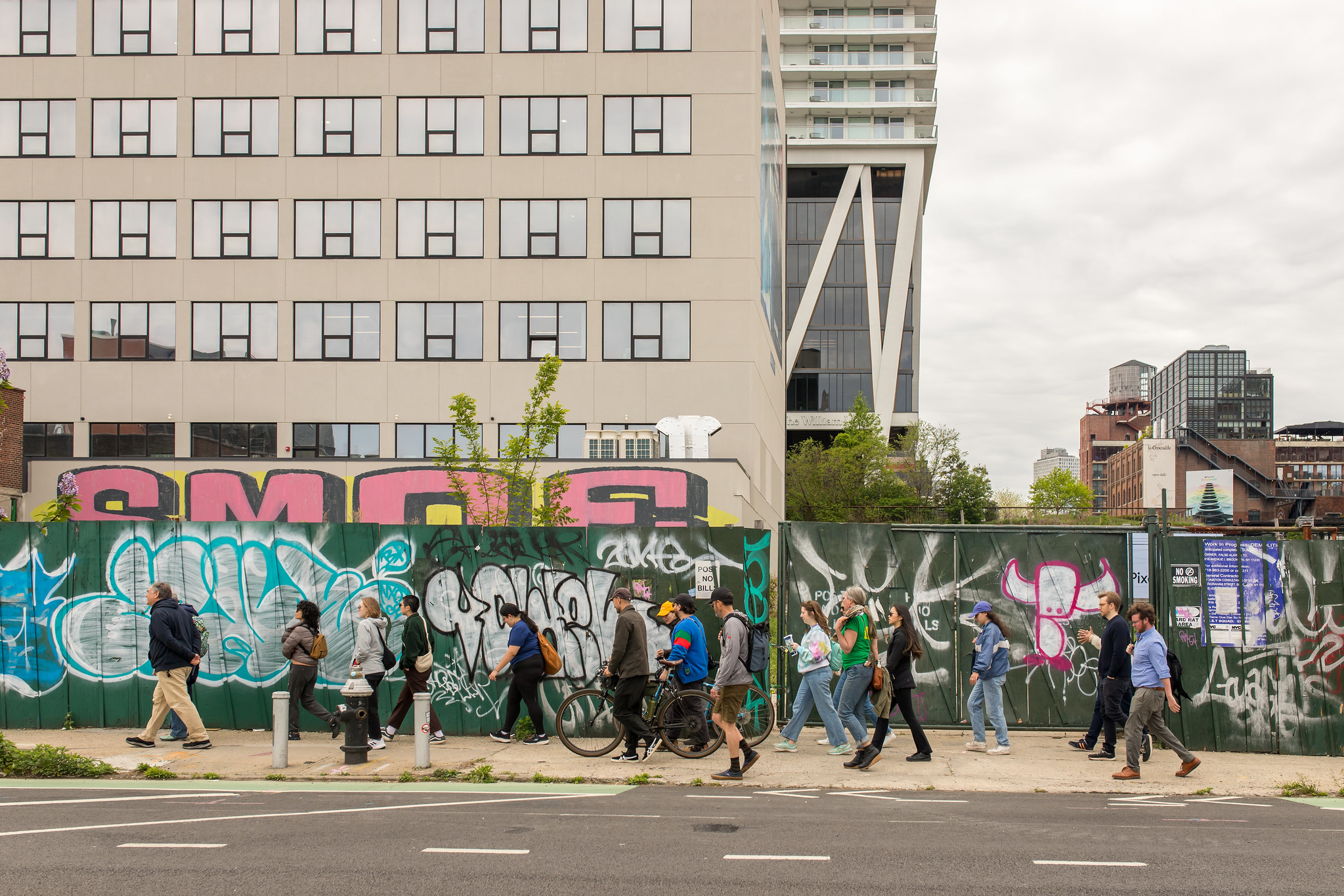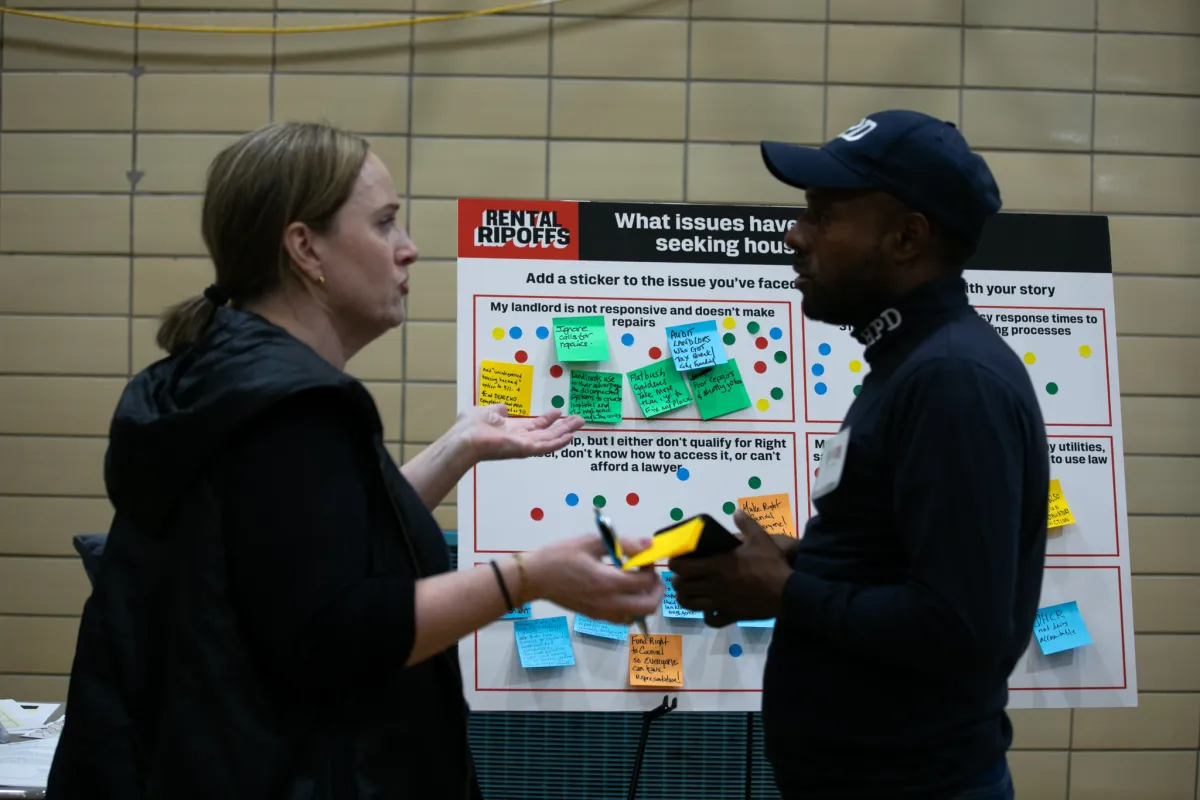Eminent Domain Spreads to Williamsburg Waterfront
How would you feel if you’d been smart enough to buy waterfront property in Williamsburg before Dan Doctoroff knew the difference between Bedford and Broadway only to have your property snatched away from you by the city? Probably something like the two groups of investors who are in the process of getting pushed out by…


 How would you feel if you’d been smart enough to buy waterfront property in Williamsburg before Dan Doctoroff knew the difference between Bedford and Broadway only to have your property snatched away from you by the city? Probably something like the two groups of investors who are in the process of getting pushed out by the forces of eminent domain to make way for a possible soccer and softball field. This time around, the city isn’t claiming blight; instead it’s invoking the concept of public good. The land, which is bounded by Kent Avenue, the East River, North 9th Street and North 10th Street in Williamsburg, is just to the north of the recently-opened East River State Park between North 8th and North 9th streets and lies at the southern end of the proposed Bushwick Inlet Park that the city’s had on the drawing boards for the past couple of years; the parcel represents phase 1 of the park project. The grand vision for the park extends north from North 9th Street about six blocks to the far side of the Bushwick Inlet. This is far from a done deal, though, according to The Real Deal, which first reported the ED action: Three land owners in the center of the footprint—TransGas, CitiStorage and the Greenpoint Monitor Museum—aren’t taking the city’s overtures lying down. “[The land] was donated and we are not giving it up,” said Janice Lauletta-Weinmann, president and co-founder of the Greenpoint Monitor Museum, told TRD. “It is a disgrace.” One remaining issue to be resolved in the North 9th Street case is price: Typically the city pays a token amount to the owners upfront and then litigates the final amount. The market value is probably somewhere between $100 and $200 per buildable square foot, according to Massey Knakal. It’ll be interesting to see what the final price is. Do you think this situation merits the use of eminent domain?
How would you feel if you’d been smart enough to buy waterfront property in Williamsburg before Dan Doctoroff knew the difference between Bedford and Broadway only to have your property snatched away from you by the city? Probably something like the two groups of investors who are in the process of getting pushed out by the forces of eminent domain to make way for a possible soccer and softball field. This time around, the city isn’t claiming blight; instead it’s invoking the concept of public good. The land, which is bounded by Kent Avenue, the East River, North 9th Street and North 10th Street in Williamsburg, is just to the north of the recently-opened East River State Park between North 8th and North 9th streets and lies at the southern end of the proposed Bushwick Inlet Park that the city’s had on the drawing boards for the past couple of years; the parcel represents phase 1 of the park project. The grand vision for the park extends north from North 9th Street about six blocks to the far side of the Bushwick Inlet. This is far from a done deal, though, according to The Real Deal, which first reported the ED action: Three land owners in the center of the footprint—TransGas, CitiStorage and the Greenpoint Monitor Museum—aren’t taking the city’s overtures lying down. “[The land] was donated and we are not giving it up,” said Janice Lauletta-Weinmann, president and co-founder of the Greenpoint Monitor Museum, told TRD. “It is a disgrace.” One remaining issue to be resolved in the North 9th Street case is price: Typically the city pays a token amount to the owners upfront and then litigates the final amount. The market value is probably somewhere between $100 and $200 per buildable square foot, according to Massey Knakal. It’ll be interesting to see what the final price is. Do you think this situation merits the use of eminent domain?
City Takes W’burg Waterfront Properties for Park [The Real Deal] GMAP





cannot wait. own up the street. this guarantees that views on our shared roof deck will stay! yeah!
and, love the idea of a 50 million mccarren renovation just a few blocks north of me and the new waterfront park just a few blocks west.
Brownstoner, it’s pretty silly to compare taking people’s homes to build a park in Fort Greene to this situation, don’t you think? I don’t know that much about the history of the various pieces of land that have been put together for this park, but none of it involved taking anyone’s home. As for the idea that Brooklyn has plenty of park — that’s just not true and you know it. A waterfront park doesn’t just benefit the immediate neighborhood — it’s an asset for a much larger area. Would you argue that the Hudson River Park is unnecessary because of Central Park and Washington Sq. Park and Battery Park? It’s long past time for Brooklyn to create EXTENSIVE public access to the waterfront for recreation. To suggest that this park is somehow excessive because the State Park is already there is just dumb. Sorry, you don’t strike me as a dumb person, but your argument in this case is really weak.
“We think the umbrella justification of “public good” is way too broad and makes it far too easy to trample on the idea of property rights.” Well, check out the Constitution, Fifth Amendment, which clearly permits such takings for “public use” (the Framers’ phrase) so long as “just compensation” is paid. My understanding is that the City pays, and the Courts insist that it does, compensation that is “just.”
What is this “idea” of “property rights” that is trampled on? Property is nothing more than what society says it is. Don’t believe me? Check out Benjamin Franklin, one of the Nation’s founders, who wrote that the right to property extended to the minimal necessities of life, but that “all Property superfluous to such purposes is the Property of the Publick, who, by their Laws, have created it, and who may therefore by other Laws dispose of it, whenever the Welfare of the Publick shall demand such Disposition.” Private property is thus permitted to be diminished by taxes, by zoning, by eminent domain, and so on. Property is not an absolute concept, and the Constitution recognizes that it can be taken so long as “due process” is followed and “just compensation” is paid.
B’stoner – Maybe they should – but clearly you see the difference in taking underutilized Brownfield WATERFRONT property for creating a contiguous waterfront greenway as compared to taking peoples primary residence for a local community park- don’t you?
Actually, even WITH this new city park, the amount of parkland per capita in Greenpoint and Williamsburg will remain FAR below the citywide average.
Also, this area was rezoned as parkland as part of a comprehensive rezoning process – this isn’t just the city swooping in and taking someone’s property on a whim.
Thank you 3:28. Brownstoner is indeed simply asserting that ED is wrong in this case and that the owners are going to be shorted. Based on what? Sounds like poster upthread has actual experience in this matter and that property owners do just fine financially in eminent domain situations. And he hasn’t answered whether he thinks ED was wrong in the case of Prospect Park, nor specified under what circumstances he thinks it *would* be acceptable, except for “extreme circumstances”, whatever those might be. Brownstoner says ED should not be a “matter of convenience.” That’s a strange way to describe building a waterfront park. Convenient? I would say that there are limited opportunities for creating waterfront recreational areas and that the siting at this location is more toward the necessary than the “convenient” end of the spectrum.
I ask again, what is the fair market value for a piece of waterfront property that is zoned for a park? The owners’ attorneys are looking for compensation based on a non-existent residential zoning.
CitiStorage and Bayside have grandfathered uses that allow them to continue using the properties for industrial purposes (and maybe even for different than current industrial purposes), but NOT for any new uses (other than a park, of course).
We think the umbrella justification of “public good” is way too broad and makes it far too easy to trample on the idea of property rights. There’s no blight (or none that the market wouldn’t be taking care of in short order) or particular need for more parkland there, with the State Park to the south and McCarren to the northeast, so as much as a public park may be preferable for us on a selfish level, it lacks the urgency we believe is necessary to justify the taking of private property. It’s a slippery slope: Right now we have to walk all the way to Fort Greene park to find some trees and grass–maybe the city should just take some of our neighbors’ houses and build a park there. It would suck for the few of them, but just think how great it would be for the rest of us in the area. The public good would be served!
Brownstoner the question is WHY dont you support the use of ED in this case and upon what precedent, belief, history, faith or evidence do you base your conclusion that the owners will not be fairly compensated?